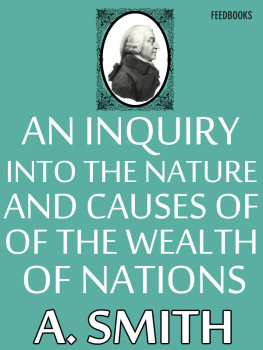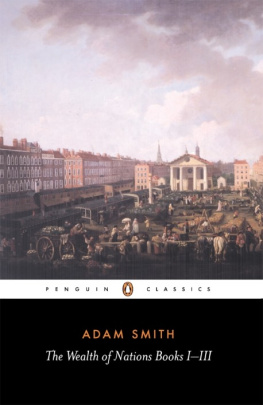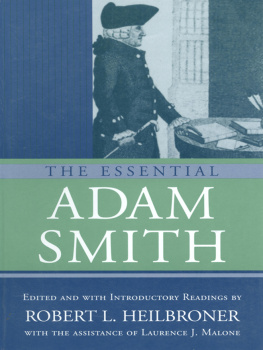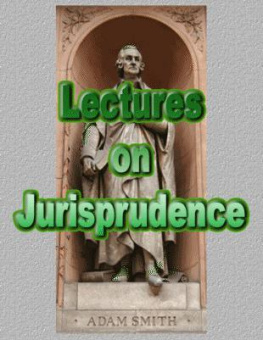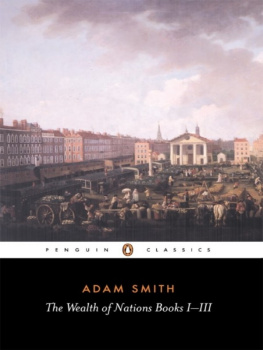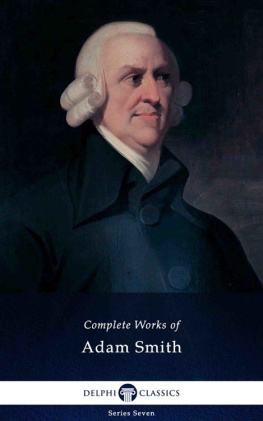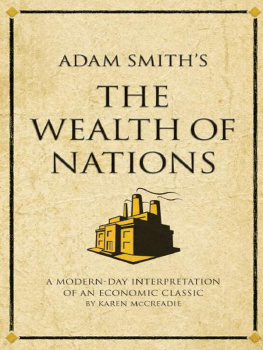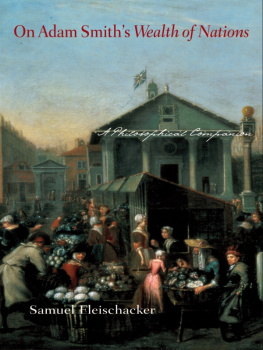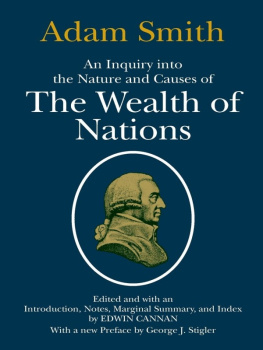Introduction and plan of the work
The annual labour of every nation is the fund which originallysupplies it with all the necessaries and conveniencies of lifewhich it annually consumes, and which consist always either in theimmediate produce of that labour, or in what is purchased with thatproduce from other nations.
According, therefore, as this produce, or what is purchased withit, bears a greater or smaller proportion to the number of thosewho are to consume it, the nation will be better or worse suppliedwith all the necessaries and conveniencies for which it hasoccasion.
But this proportion must in every nation be regulated by twodifferent circumstances: first, by the skill, dexterity, andjudgment with which its labour is generally applied; and, secondly,by the proportion between the number of those who are employed inuseful labour, and that of those who are not so employed. Whateverbe the soil, climate, or extent of territory of any particularnation, the abundance or scantiness of its annual supply must, inthat particular situation, depend upon those two circumstances.
The abundance or scantiness of this supply, too, seems to dependmore upon the former of those two circumstances than upon thelatter. Among the savage nations of hunters and fishers, everyindividual who is able to work is more or less employed in usefullabour, and endeavours to provide, as well as he can, thenecessaries and conveniencies of life, for himself, and such of hisfamily or tribe as are either too old, or too young, or too infirm,to go a-hunting and fishing. Such nations, however, are somiserably poor, that, from mere want, they are frequently reduced,or at least think themselves reduced, to the necessity sometimes ofdirectly destroying, and sometimes of abandoning their infants,their old people, and those afflicted with lingering diseases, toperish with hunger, or to be devoured by wild beasts. Amongcivilized and thriving nations, on the contrary, though a greatnumber of people do not labour at all, many of whom consume theproduce of ten times, frequently of a hundred times, more labourthan the greater part of those who work; yet the produce of thewhole labour of the society is so great, that all are oftenabundantly supplied; and a workman, even of the lowest and poorestorder, if he is frugal and industrious, may enjoy a greater shareof the necessaries and conveniencies of life than it is possiblefor any savage to acquire.
The causes of this improvement in the productive powers oflabour, and the order according to which its produce is naturallydistributed among the different ranks and conditions of men in thesociety, make the subject of the first book of this Inquiry.
Whatever be the actual state of the skill, dexterity, andjudgment, with which labour is applied in any nation, the abundanceor scantiness of its annual supply must depend, during thecontinuance of that state, upon the proportion between the numberof those who are annually employed in useful labour, and that ofthose who are not so employed. The number of useful and productivelabourers, it will hereafter appear, is everywhere in proportion tothe quantity of capital stock which is employed in setting them towork, and to the particular way in which it is so employed. Thesecond book, therefore, treats of the nature of capital stock, ofthe manner in which it is gradually accumulated, and of thedifferent quantities of labour which it puts into motion, accordingto the different ways in which it is employed.
Nations tolerably well advanced as to skill, dexterity, andjudgment, in the application of labour, have followed verydifferent plans in the general conduct or direction of it; andthose plans have not all been equally favourable to the greatnessof its produce. The policy of some nations has given extraordinaryencouragement to the industry of the country; that of others to theindustry of towns. Scarce any nation has dealt equally andimpartially with every sort of industry. Since the down-fall of theRoman empire, the policy of Europe has been more favourable toarts, manufactures, and commerce, the industry of towns, than toagriculture, the Industry of the country. The circumstances whichseem to have introduced and established this policy are explainedin the third book.
Though those different plans were, perhaps, first introduced bythe private interests and prejudices of particular orders of men,without any regard to, or foresight of, their consequences upon thegeneral welfare of the society; yet they have given occasion tovery different theories of political economy; of which some magnifythe importance of that industry which is carried on in towns,others of that which is carried on in the country. Those theorieshave had a considerable influence, not only upon the opinions ofmen of learning, but upon the public conduct of princes andsovereign states. I have endeavoured, in the fourth book, toexplain as fully and distinctly as I can those different theories,and the principal effects which they have produced in differentages and nations.
To explain in what has consisted the revenue of the great bodyof the people, or what has been the nature of those funds, which,in different ages and nations, have supplied their annualconsumption, is the object of these four first books. The fifth andlast book treats of the revenue of the sovereign, or commonwealth.In this book I have endeavoured to shew, first, what are thenecessary expenses of the sovereign, or commonwealth; which ofthose expenses ought to be defrayed by the general contribution ofthe whole society, and which of them, by that of some particularpart only, or of some particular members of it: secondly, what arethe different methods in which the whole society may be made tocontribute towards defraying the expenses incumbent on the wholesociety, and what are the principal advantages and inconvenienciesof each of those methods; and, thirdly and lastly, what are thereasons and causes which have induced almost all modern governmentsto mortgage some part of this revenue, or to contract debts; andwhat have been the effects of those debts upon the real wealth, theannual produce of the land and labour of the society.

